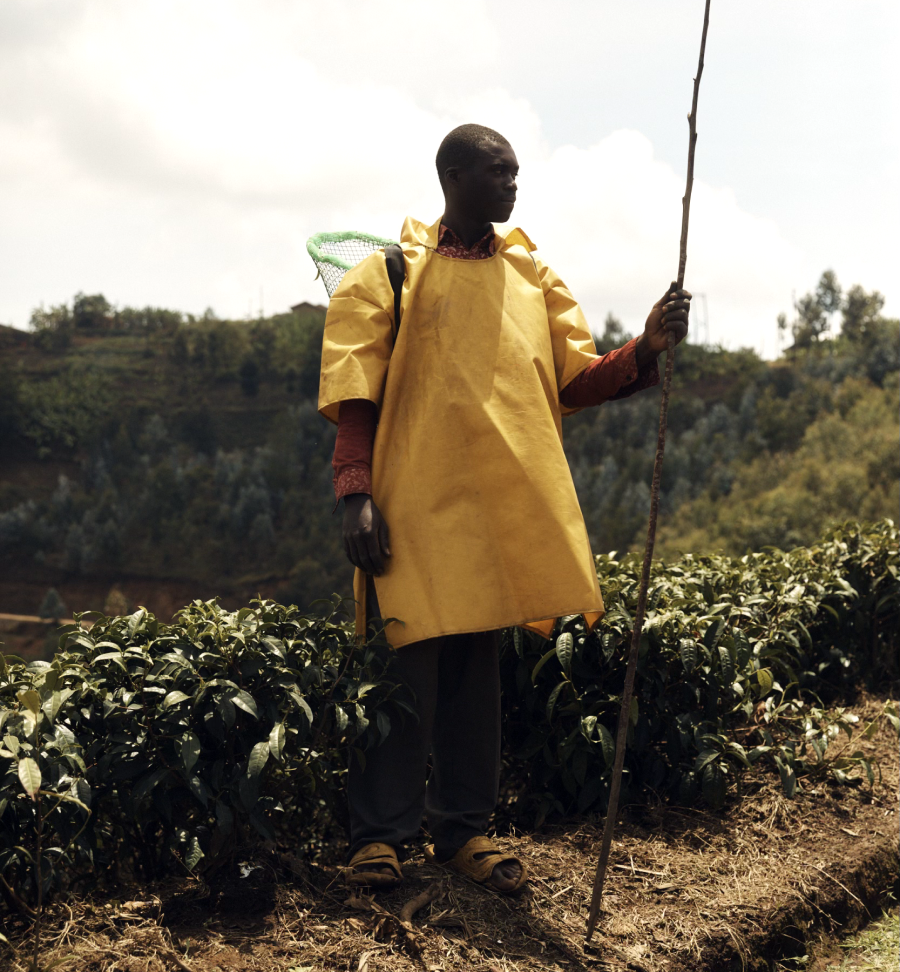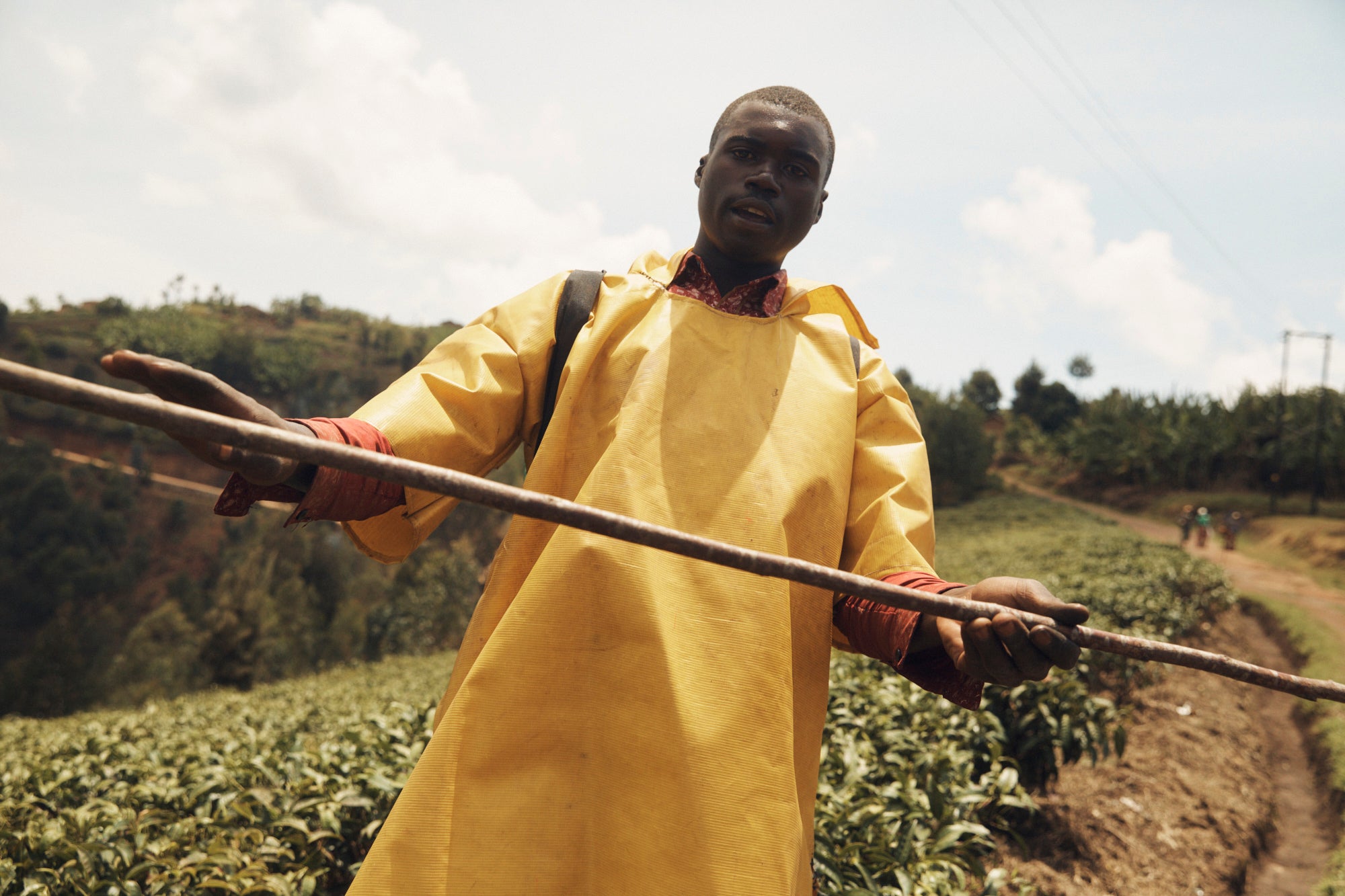who grew your tea?
We tend to think of tea as being grown on big sweeping estates and a lot of it is.
But 70% of the world’s tea is grown by smallholder farmers; that’s farmers with less than 1 hectare of land on average - basically, a really big tea garden.
You can read about the farmers that grow SPILL tea here.
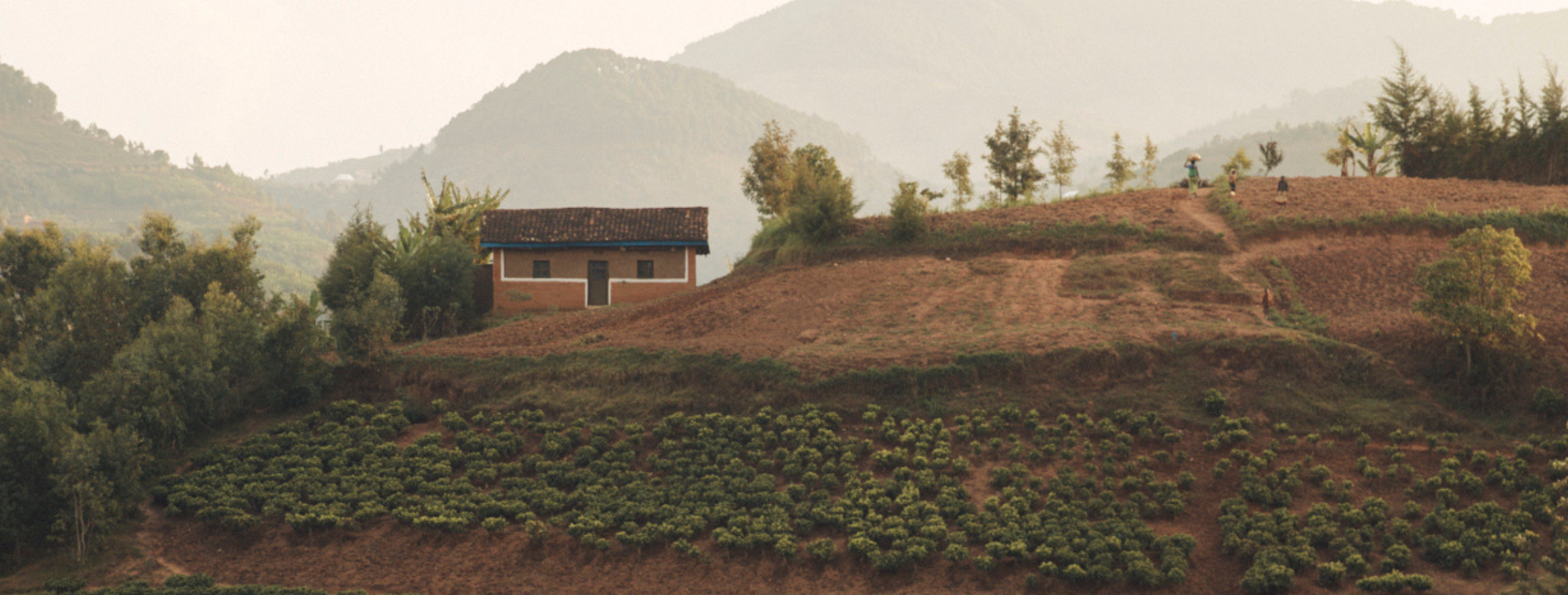

where it's grown
SPILL tea is from Rugabano in Rwanda and is what they call “single origin”. The tea here tastes so good it doesn’t need to be blended.
Big hills, volcanic soil, tropical sunshine, heavy showers; these are the things that make great tasting tea and Rwanda has the lot.
That’s the first thing.
The government has also got serious about quality tea and have put in place an incentive scheme that rewards farmers for picking tea to a high quality standard.
Rwanda is the only country to have formalised a plucking standard; the freshest two leaves and a bud, from the very top of the bush. Not too big. Not too small.
Tea farmers are paid a premium for plucking tea that meets this standard. And they pluck by hand - hands see better than machines,
Rwanda produces some of the best tea in the world but is still one of the smallest tea producers - only 1% of tea is made here. We think the best 1%.
Tea is important in Rwanda. It's important in the UK too, but for different reasons.
Rwanda is developing very quickly following a particularly difficult past. 80% of people live in rural areas - so investing in farming and agriculture is a big part of the county's development. And tea is Rwanda's second biggest export commodity after coffee.
They're a smaller player in the world of tea growers and they do it very well.
Everyone should know about this tea!
Smallholder farmers
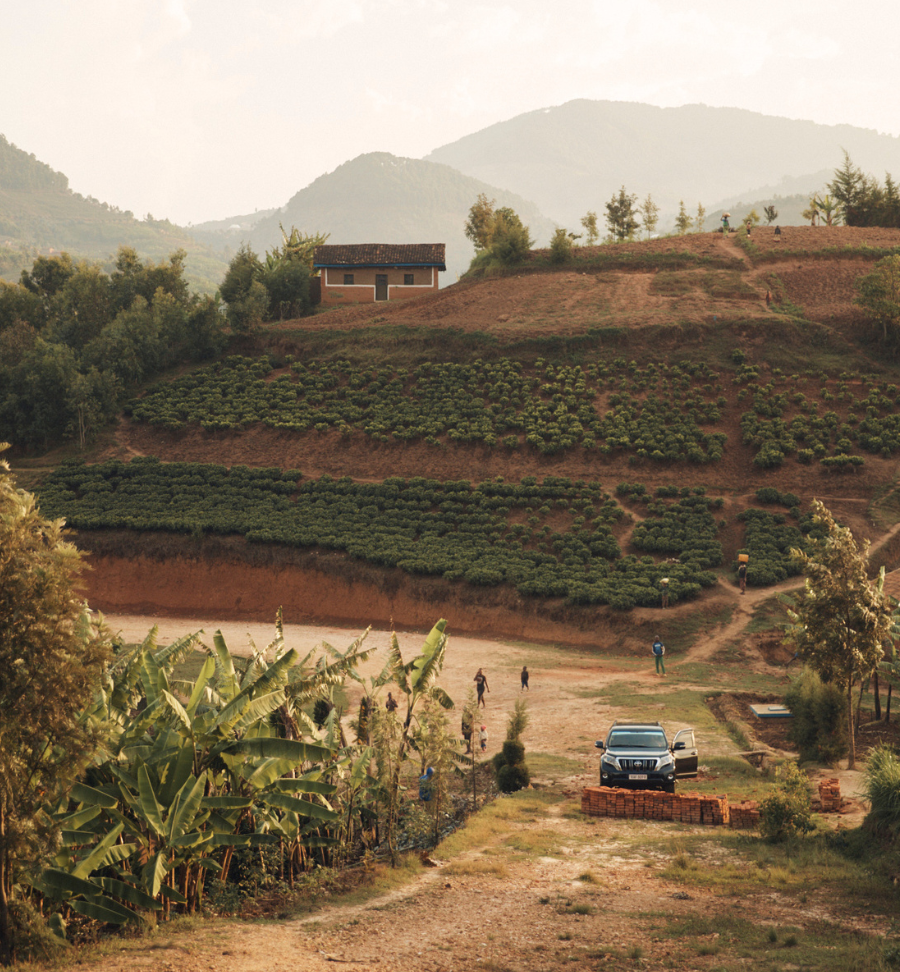

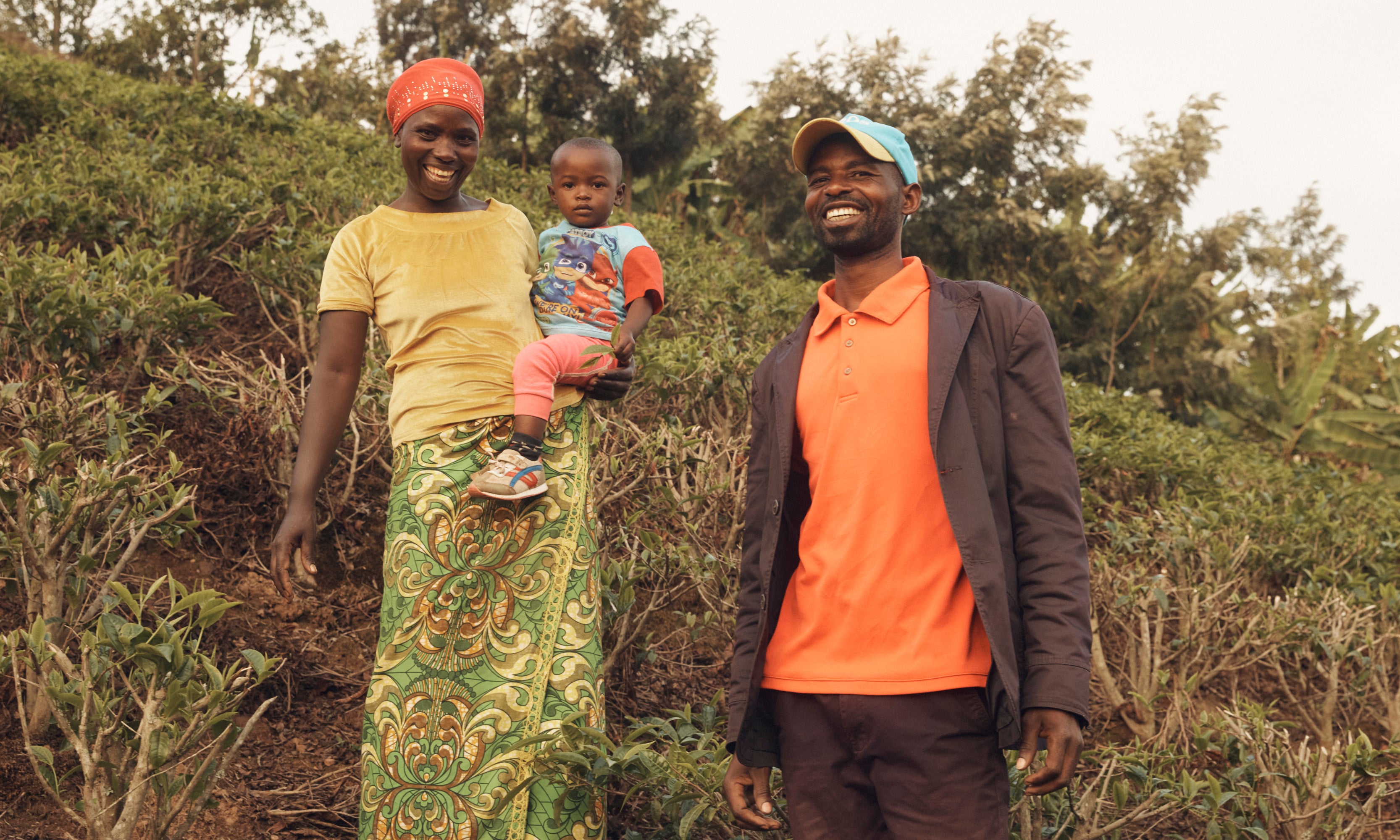

Emmanuel, Lucie and Sandrine in their tea field (right) and the view from their home (left)
70% of the world’s tea is grown by smallholder farmers - that’s farmers with less than 1 hectare on average (basically, a really big garden near their homes rather than big commercial farms).
Even the huge tea brands that own big tea estates rely on tea from nearby smallholder farmers.
SPILL tea is grown by smallholder farmers in Rugabano, Rwanda. It’s a very rural area that is perfect for growing great quality tea.
The farmers who live here are experienced subsistence farmers, so they grow crops (mainly beans, corn and sweet potatoes) for themselves and their families.
Over the last 10 years more and more farmers in this area are turning their hand to tea farming - because unlike other crops, tea can provide an income all year round.
Our partners, The Wood Foundation, are a UK-based philanthropic organisation that support smallholder livelihoods.
Through their farmer servces company, Rugabano Outgrowers Services Company (ROS), they support smallholder farmers in Rwanda in becoming commercial tea growers.
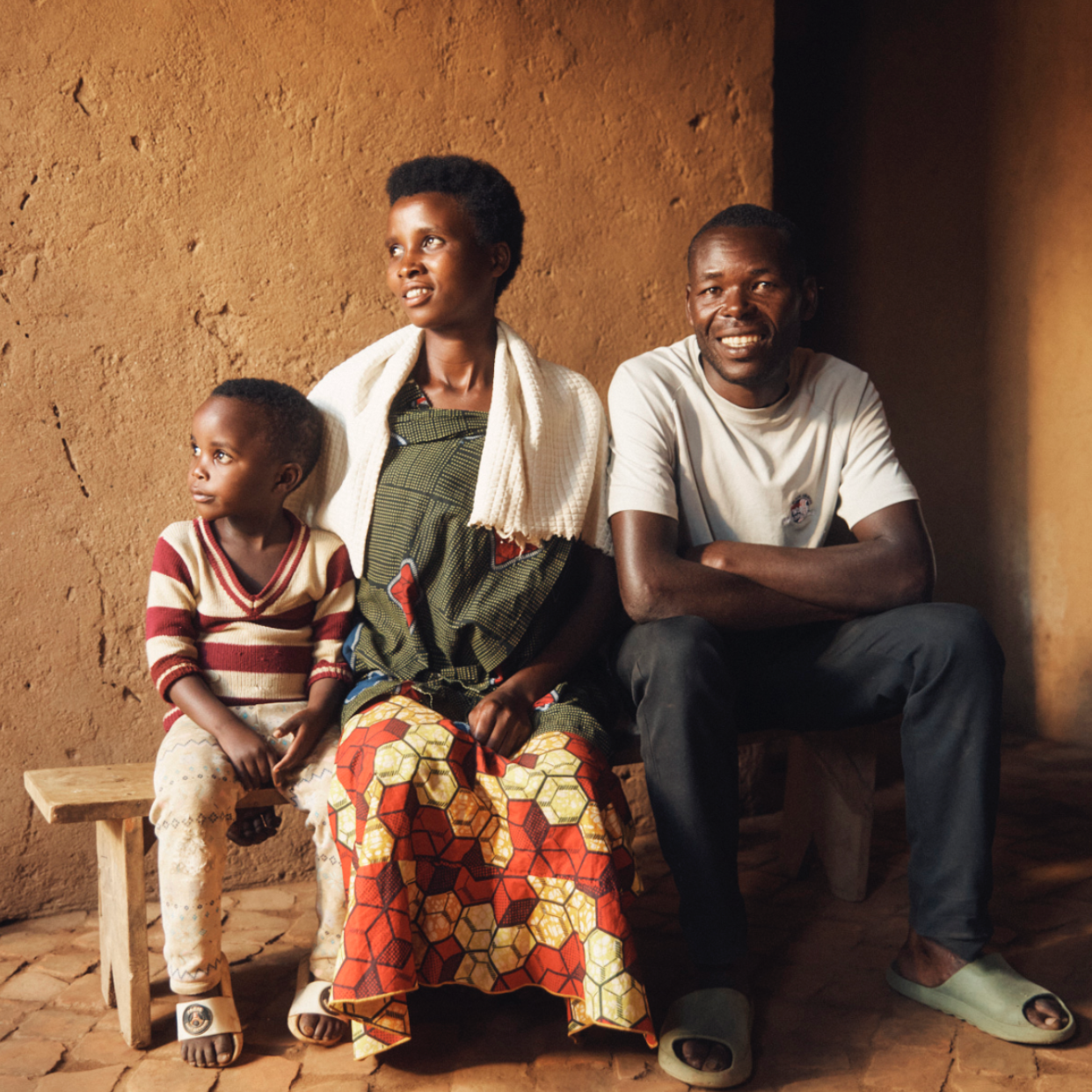

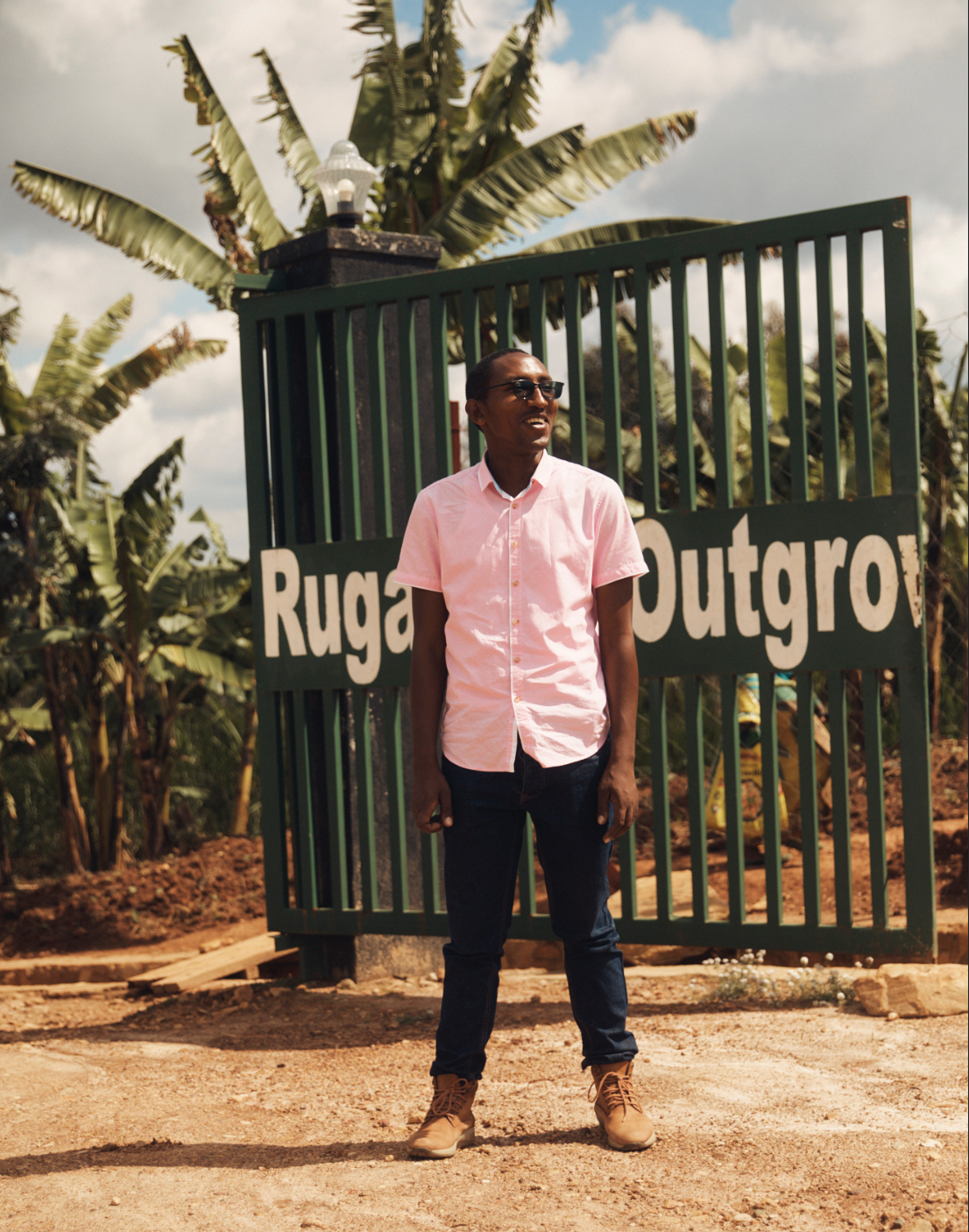

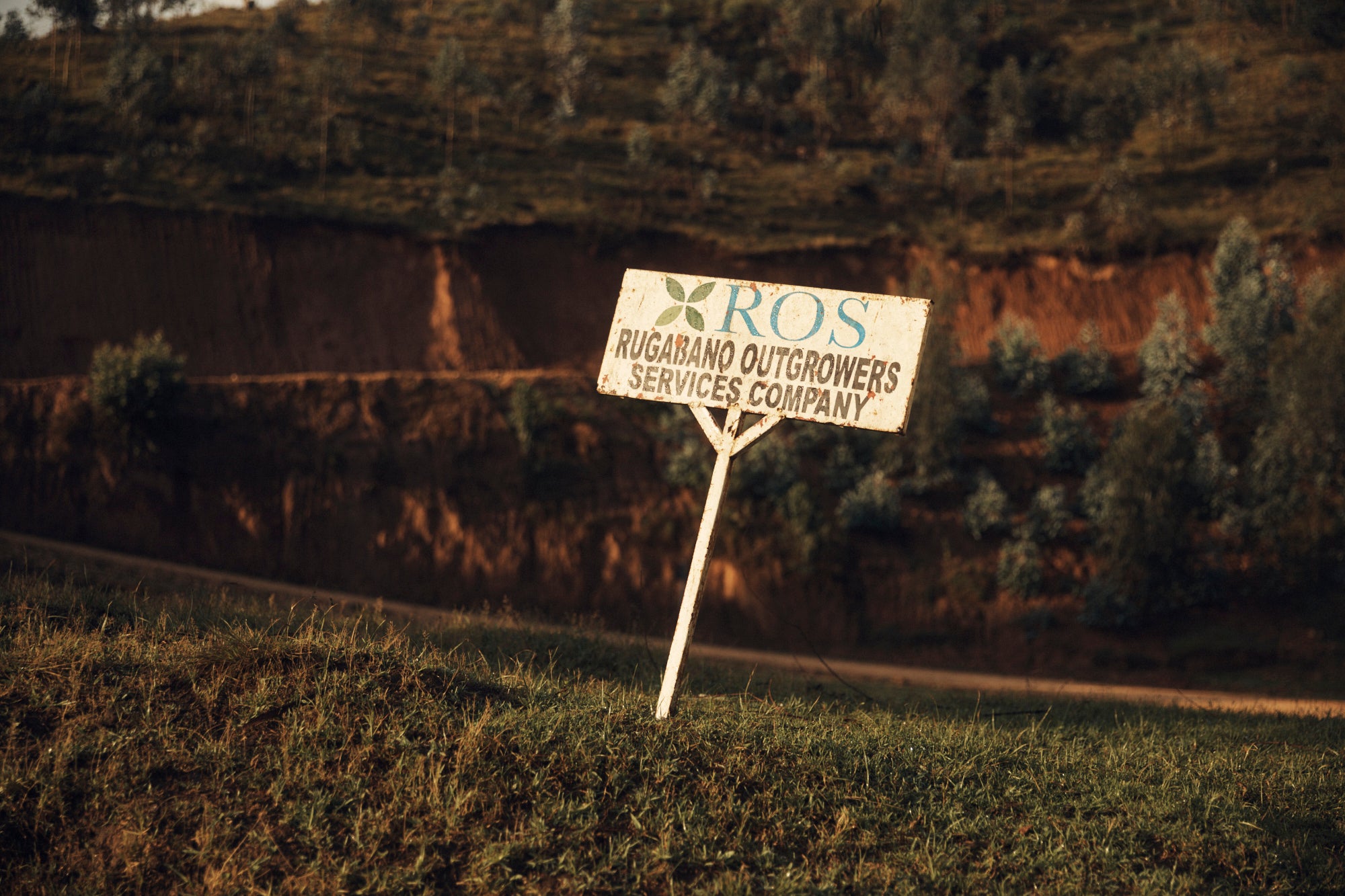

Callixte, General Manager of Rugabano Outgrower Services, their offices
ros farmer program
ROS are giving smallholder farmers in Rwanda the opportunity to become tea farmers. This is starting to provide a year-long income for many for the first time.
ROS provide farmers with access to quality seedlings and everything they need to get started including:
- Land preparation, tea seedlings and fertiliser - this is done on an interest-free, un-secured loan
- Tea training and ongoing mentoring from agronomists
- Transportation of tea to factory
- Improvement of roads
- Support in achieving Rainforest Alliance status
Farmers don’t start paying back their start-up loans until their tea gardens start to produce green leaf tea. Loan repayments are then taken slowly as a percentage of payments made for tea.
It takes 8-10 years for tea bushes to reach maturity. Once the bushes are fully mature, ROS farmers will be debt-free with a biological asset in the ground which will provide steady income for themselves and future generations.
ROS are a non-profit organisation and farmer representatives sit on the ROS Board.
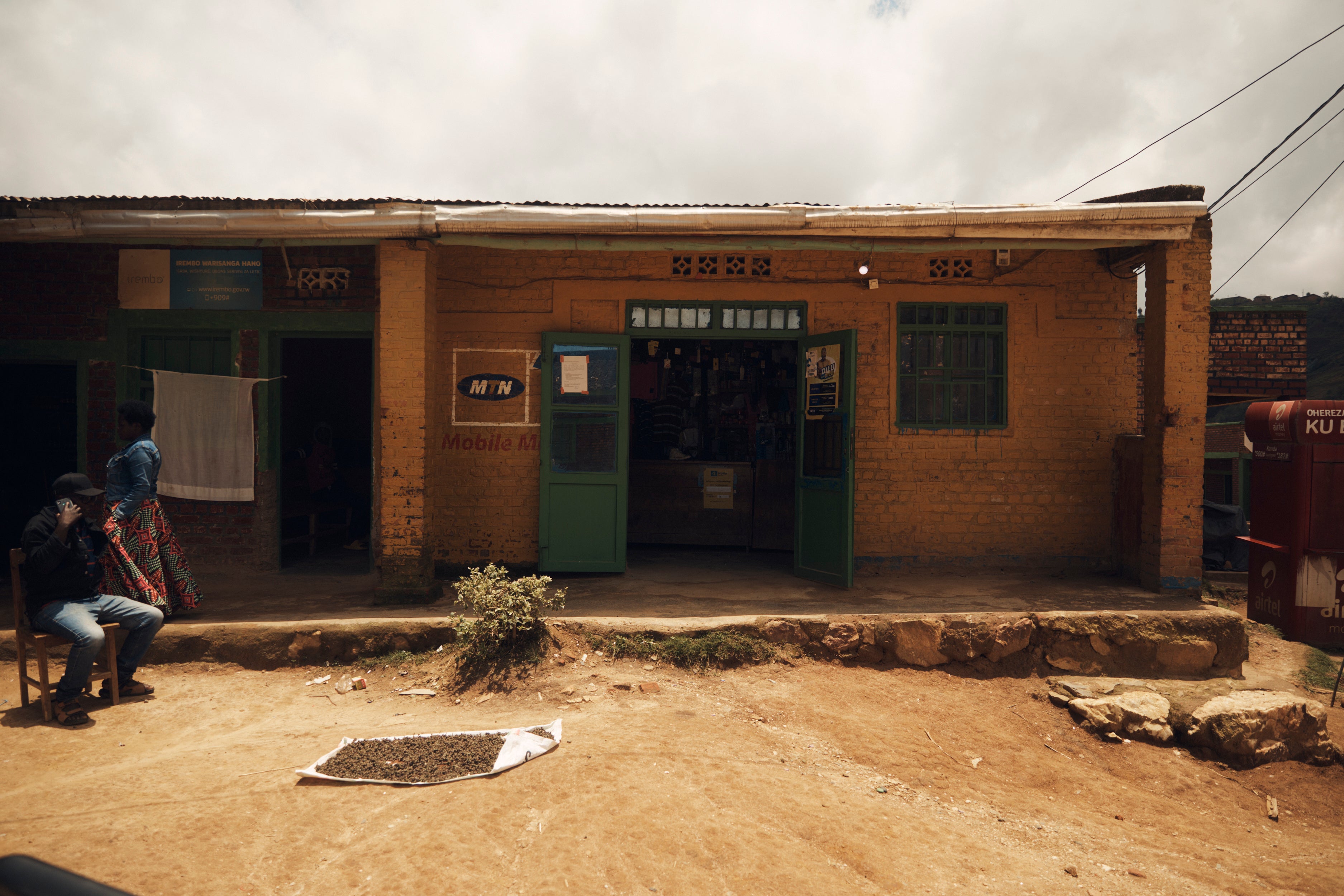

SPILL tea is single origin; it’s from Rugabano in Rwanda.
impact
The Wood Foundation closely monitor the impact of tea growing on farmer livelihoods through baseline assessments, anonymous surveys and meetings.
This level of monitoring and transparency is hard to come by in tea and is one of the big reasons we are choosing to buy tea from Rugabano.
Here’s a snapshot of some of the main improvements tea is making.
In just one year of growing tea, of 75 new farmers surveyed:
85% of farmers noticed they were able to buy goods and services more easily.
Medical care, clothing for family and school feels - being able to pay for these things was stated as the top improvements that have come from tea farming.
67% of farmers are keen to expand their tea farming business because of the regular cash income and the long term profits for themselves and their children.
Tea growing is having an impact on the wider community because of the availability of more cash. Shops and small businesses are opening up in the village centre and local shops are ordering in more and more supplies as locals continue to be able to buy more things.
Good Tea. Nothing To Hide.
SPILL pays $4/kilo.
Plus, an additional farmer payment $0.50 / kilo.
For context, average market price Rwanda 2024: $2.82
Spill Farmer Model
Better tasting tea
Source quality tea that tastes great, not "meh"
better farmer price
Pay more for better quality tea
Put a larger share in the farmer's pocket
We'll SPILL
Be open about payments to farmers
